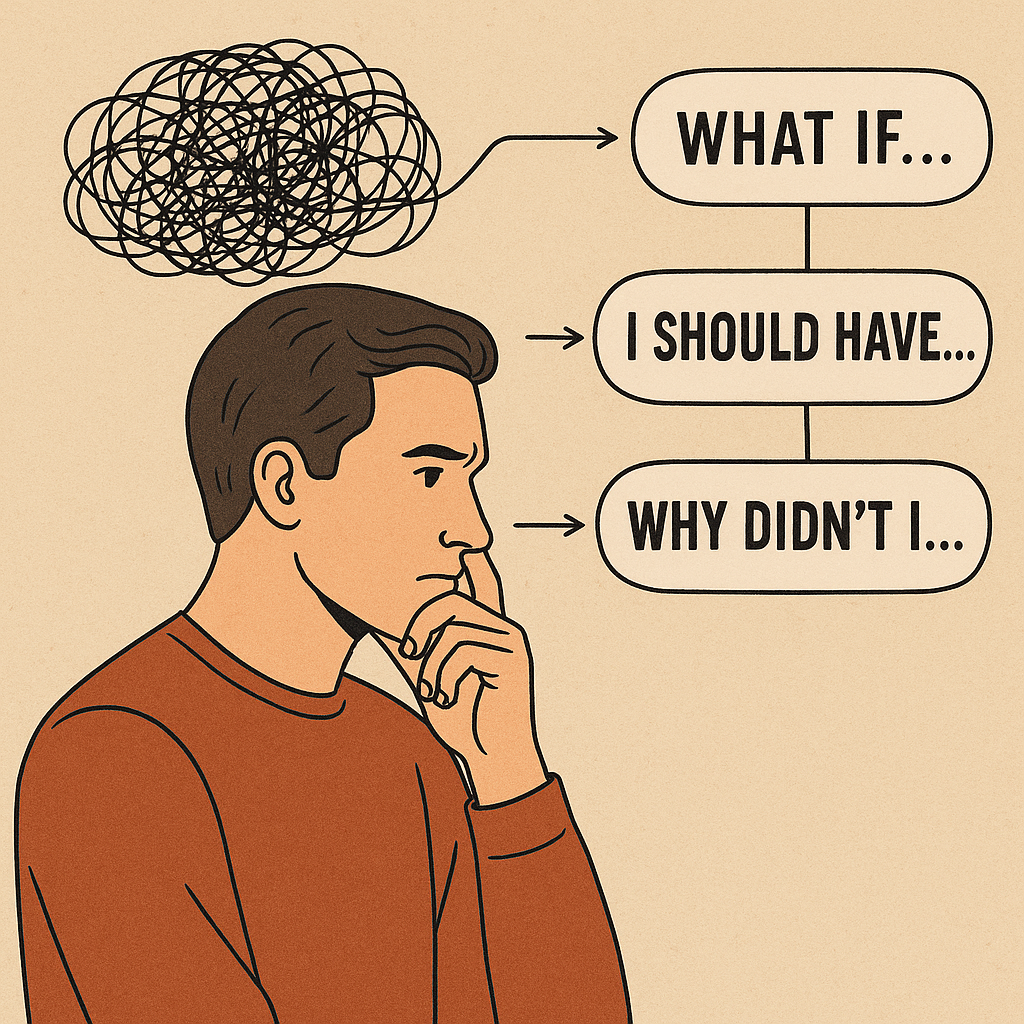
Have you ever found yourself replaying a situation over and over in your mind—wishing you had said something different, acted more confidently, or handled it better? We all do it. Our minds love to build “what if” scenarios, both looking backward and forward, imagining how things could have gone differently or how they might go next time.
But here’s the truth: this mental storytelling often brings more harm than good. It doesn’t change what happened. It doesn’t prepare us for the future. Instead, it drains our energy, damages our confidence, and traps us in cycles of regret or overthinking.
So, how can we stop? The key lies in transforming these experiences into something valuable—our personal values.
Why Mental Scenario-Building Is So Destructive
Imagine you’re in a group setting and someone disrespects you. Later, as you walk away, your mind begins replaying the scene:
“I should have said this.”
“If only I had responded differently.”
“Next time, I won’t let that happen.”
These mental replays can last minutes—or hours. In more emotionally charged situations, they can haunt us for days. And while they feel like we’re processing the event, in reality, they’re just mental noise. The situation is already over. Nothing changes except our stress level.
The Shift: From Mental Scenarios to Meaningful Values
Instead of replaying the moment endlessly, try extracting values from it. Ask yourself:
-
Am I satisfied with how I responded?
-
If not, what exactly made me feel unsatisfied?
-
What could I have done to maximize my sense of peace and minimize distress?
These questions turn reflection into insight. By identifying what truly matters to you in such moments—respect, calmness, assertiveness—you can shape guiding principles for the future.
A Real-Life Example
Let me share a real experience.
One day, my wife and I went to a local nut shop where we often shopped. While we were there, a woman entered, upset about a box of chocolates she wanted to return. The shop owner accused her of lying, insisting that part of the chocolates had already been eaten, even though she swore she hadn’t opened the box.
The argument escalated quickly. The woman started shouting, the owner yelled back, and chaos filled the shop. My wife and I just stood there, uncomfortable, waiting for it to end.
When we finally left, I couldn’t stop thinking about it. I felt wronged—not because I was involved, but because of the disrespect and tension in that environment. I kept replaying the scene:
Should I have said something? Should I have left immediately? Should I have told the owner how inappropriate his behavior was?
The Lesson Hidden in the Situation
After a while, I realized something: the endless mental replay wasn’t helping. Instead, I asked myself, “What value can I take from this?”
The answer was clear. I value respect and emotional peace.
So I made a personal rule: if I’m ever in a place where someone’s behavior—toward me or anyone else—feels disrespectful, I will quietly leave. If I can’t leave immediately, I’ll at least distance myself emotionally and physically.
In that nut shop, I could have easily walked out the moment the shouting began. That simple action would have protected my peace and upheld my values.
Finding Your Values in Real Life
For years, I wondered how people discover their core values. Now I believe the answer is simple: our real-life experiences—especially uncomfortable ones—are the best teachers.
Every time something unpleasant happens, it’s an invitation to reflect, not replay.
Instead of thinking “What should I have done differently?”, try asking:
“What value can I learn from this?”
That’s how we turn regret into wisdom.
Final Thought
Mental scenario-building is a habit we all share—but we can choose to evolve beyond it. Life will always give us imperfect moments, and that’s okay. What matters most is how we grow from them.
Next time your mind starts writing another “what if” story, pause.
Ask yourself what the moment is trying to teach you about your values.
That’s how reflection becomes transformation.